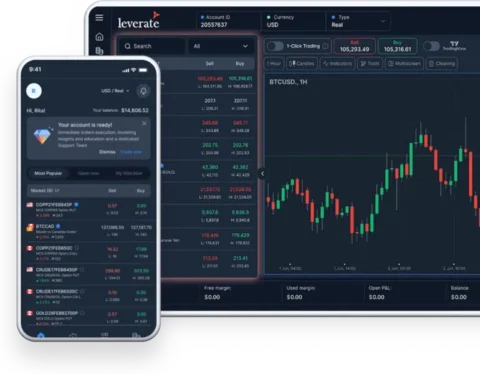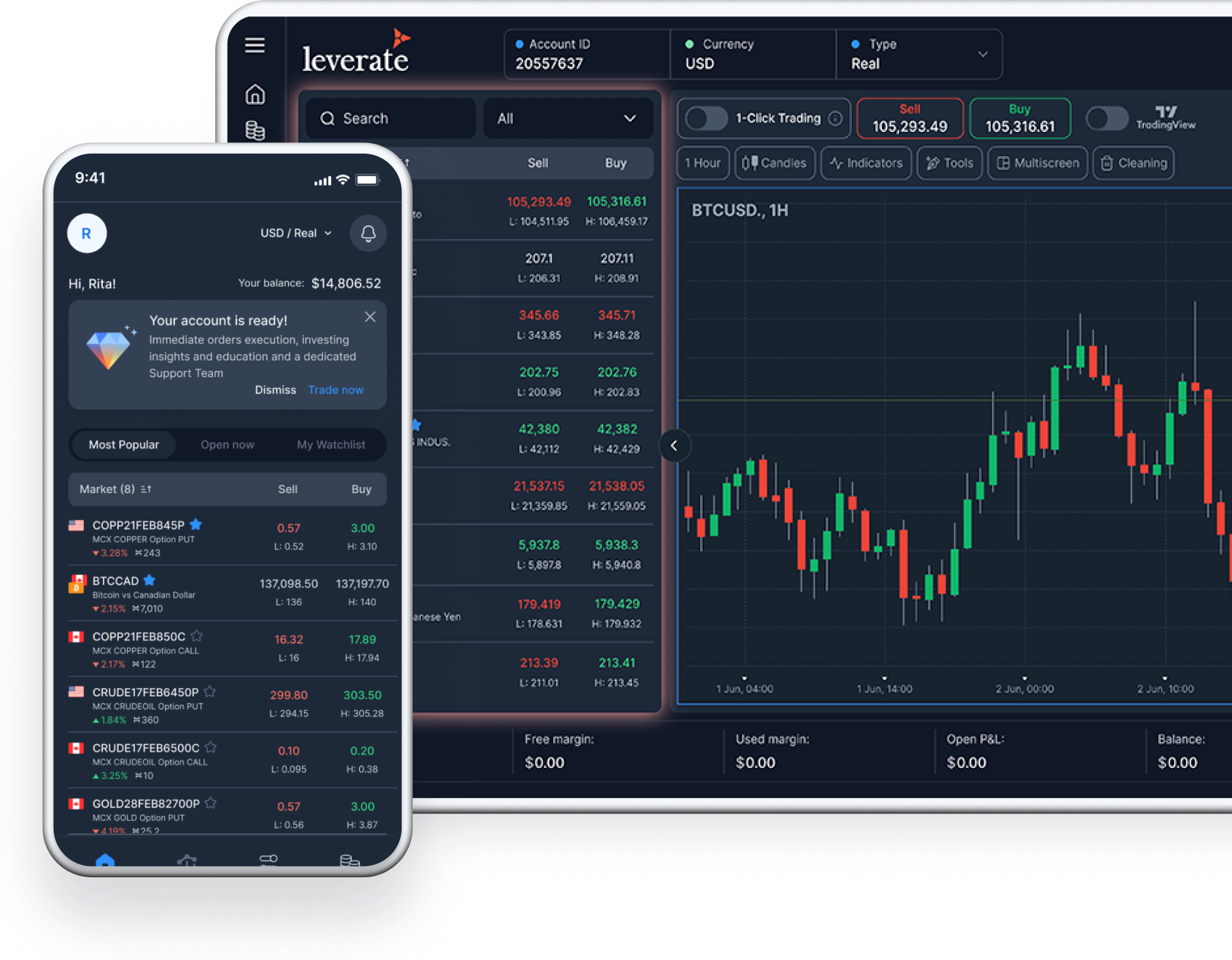
Liquidity is absolutely vital for the success of any prop firm. Without deep and reliable liquidity, a prop firm struggles to execute trades efficiently, manage risk, and provide a seamless trading experience for its traders. But why is liquidity so crucial, and how can prop firms ensure they have access to the best liquidity solutions?
Understanding Liquidity in Prop Trading
At its core, liquidity refers to how easily an asset can be bought or sold in the market without significantly impacting its price. The more liquid an asset, the easier it is to trade large volumes quickly and at stable prices. For prop firms, liquidity is not just a nice-to-have, it’s a make-or-break factor.
Types of Liquidity That Affect a Prop Firm
- Market Liquidity The overall depth of the market for a given asset. If a market is highly liquid, traders can enter and exit positions with minimal slippage.
- Broker Liquidity The access a prop firm has to liquidity providers, market makers, and other trading venues. Better broker liquidity ensures smoother trade execution.
- Internal Liquidity The firm’s ability to match trades internally between traders, reducing dependence on external liquidity providers and minimizing costs.
How Liquidity Impacts a Prop Firm’s Success
Execution Speed and Trade Efficiency
In prop trading, milliseconds matter. Liquidity ensures that traders can execute orders instantly without experiencing large price fluctuations. Poor liquidity leads to slippage, where a trader’s order is filled at a worse price than expected, potentially eroding profits.
Risk Management and Stability
A well-structured liquidity setup helps prop firms manage risk more effectively. High liquidity means tighter spreads, lower volatility, and a reduced likelihood of extreme price swings wiping out positions. Additionally, access to multiple liquidity sources prevents reliance on a single provider, mitigating counterparty risk.
Profitability and Competitive Edge
A firm with better liquidity can offer superior pricing to its traders, attracting top talent and increasing profitability. Reduced trading costs, better spreads, and lower transaction fees all contribute to a firm’s bottom line.
Trader Confidence and Retention
Traders in a prop firm thrive when they can execute their strategies without friction. If they experience slow execution, wide spreads, or order rejections, they may leave for firms offering better liquidity. Providing a seamless experience keeps traders engaged and profitable, which, in turn, benefits the firm.
How Prop Firms Can Optimize Their Liquidity Setup
Partnering with Strong Liquidity Providers
The best prop firms collaborate with top-tier liquidity providers (LPs) that collect pricing from multiple sources, including banks, hedge funds, and electronic communication networks (ECNs). This broad market access ensures deep liquidity pools, reducing the risk of order slippage and widening spreads. Additionally, working with multiple LPs enhances price stability, providing traders with tighter spreads and faster execution. Choosing the right liquidity provider is crucial for maintaining consistent trade execution and mitigating market disruptions.
Implementing Smart Order Routing (SOR)
Smart Order Routing (SOR) technology dynamically scans multiple liquidity sources to find the best available price for each trade in real-time. By routing orders to the most favourable venue, SOR minimizes execution delays, reduces slippage, and ensures that traders get optimal pricing. This is especially beneficial in volatile markets, where price discrepancies between providers can be significant. For prop firms that execute high-frequency trades, SOR is an essential tool for maintaining efficiency and profitability.
Using a Hybrid Liquidity Model
A hybrid liquidity model combines both external and internal liquidity to optimize trade execution. External liquidity comes from LPs and market makers, ensuring access to global financial markets, while internal liquidity allows the firm to match trades within its own network of traders. By internalizing some trades, prop firms can reduce transaction costs, improve execution speed, and enhance risk management. This model also gives firms greater control over pricing and exposure, making it a flexible and cost-effective liquidity strategy.
Leveraging Advanced Trading Platforms
A prop firm’s trading platform plays a critical role in how effectively it utilizes liquidity. Advanced trading infrastructure with ultra-low latency execution ensures that traders can enter and exit positions without delays, even during periods of high market volatility. Features like direct market access (DMA), algorithmic trading capabilities, and real-time risk monitoring help optimize liquidity usage. A well-integrated platform not only enhances execution speed but also provides traders with the tools they need to capitalize on market opportunities efficiently.
Liquidity for Prop Firms vs. CFD Brokerages
While liquidity is critical for prop firms, it’s equally essential for CFD brokerages. CFD brokers rely on liquidity to provide traders with seamless market access, competitive spreads, and minimal slippage. The key difference lies in how liquidity is managed:
- Prop Firms focus on optimizing execution for their traders, often through direct market access (DMA) and internal risk management strategies.
- CFD Brokers must balance liquidity with risk exposure, sometimes using A-book (direct market access) or B-book (internal risk handling) models.
How LXCapital of Leverate Supports Both Prop Firms and CFD Brokers
LXCapital, Leverate’s prime liquidity solutions, provides state-of-the-art liquidity solutions tailored to meet the unique needs of both prop trading firms and CFD brokerages. By ensuring seamless access to top-tier liquidity providers, LXCapital empowers firms with a tailor-made solution that enhances execution speed, risk management, and overall trading efficiency.
LXCapital consolidates pricing from multiple sources through its aggregated liquidity system, ensuring deep liquidity pools and competitive spreads. With multi-asset liquidity, firms can access a diverse range of trading instruments, including forex, commodities, indices, and cryptocurrencies, all within a single, efficient system.
For firms requiring direct access to institutional-grade liquidity, fixed API connectivity allows for seamless integration with trading systems, ensuring high-speed data transmission and automation capabilities. Combined with ultra-fast execution, traders can capitalize on market opportunities with minimal slippage and maximum precision.
LXCapital’s high-end infrastructure is designed to handle high-frequency trading environments with reliability and scalability. Prop firms can optimize their execution strategies, while CFD brokers can efficiently manage risk exposure, allowing both to scale profitably and compete at the highest level.
If you want your prop firm or brokerage to succeed and offer your traders an exceptional trading experience, LXCapital’s cutting-edge liquidity solutions offering speed, stability, and flexibility can set you up for sustainable, long-term growth. Contact us and let’s create the environment your traders deserve.



















